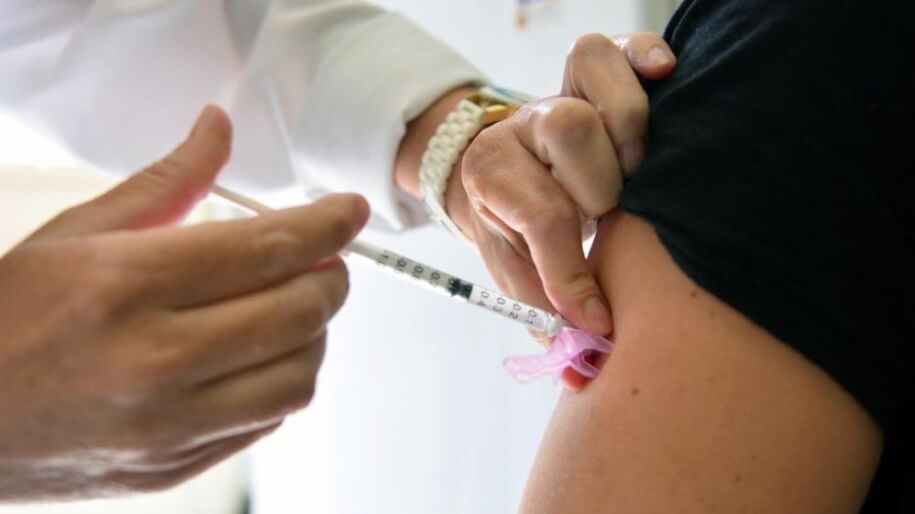The AstraZeneca vaccine against Covid-19 shows some symptoms for most people who receive the vaccination. AstraZeneca is produced in Brazil, in partnership with Fiocruz.
Most adverse reactions are considered mild to moderate and usually appear within a few days after vaccination. They were also more frequent after the first dose of the vaccine.
Among the most common side effects are pain at the injection site, headache, fatigue, body aches and malaise, fever, chills, joint pain, and nausea. It is noted that it is unusual for swollen glands, armpits, and neck to occur in the same place on the arm that received the vaccine. According to specialists, these symptoms can last for about ten days, but if they persist for a longer period, it is necessary to seek medical attention.
What do I do if I have a side effect?
It usually appears within up to two days after vaccination and usually lasts two days at most. The most recommended medicine for side effects is dipyrone or paracetamol, always keeping in mind the instructions on the inner leaflet.
Anti-inflammatories are not recommended. If new symptoms appear from the fourth day after vaccination, the indication is to seek medical attention. Anvisa warns against excessive use of paracetamol to relieve pain and fever after vaccination, and experts object to the use of anti-inflammatory drugs such as aspirin, diclofenac or ibuprofen.
What do AstraZeneca and Johnson say?
Written by Lara Pinheiro G1
After temporarily suspending its vaccine application in Europe in March, AstraZeneca said in early April that it was “working to understand the individual cases and the potential mechanisms that could explain these very rare events.”
On April 9, Johnson & Johnson said there was no clear causal relationship between the vaccine and clots. Application of the vaccine was suspended in the United States after a few days, but after ten days of discontinuation, application was resumed.
12. Are there groups who should not receive the Oxford/AstraZeneca vaccine other than pregnant women?
According to the guidelines of the British government – the first in the world to approve and apply the Oxford / AstraZeneca vaccine – the vaccine is prohibited in the following cases:
People with hypersensitivity to the active substance or to any of the excipients in the vaccine: L-histidine, L-histidine hydrochloride monohydrate, magnesium chloride hexahydrate, polysorbate 80, ethanol, sucrose, sodium chloride, disodium edetate dihydrate and water for injection.
People who have experienced severe venous and/or arterial thrombosis with thrombocytopenia (low blood platelet count) after being vaccinated with any Covid-19 vaccine. They should not receive a second dose of the AstraZeneca vaccine.
Patients with a history of thrombocytopenia and heparin-induced thrombosis (see details below).
The UK government also recommends talking to a doctor if you:
- you have ever had a severe allergic reaction (anaphylaxis) after any other vaccine;
- He is currently suffering from a severe infection with a high temperature (more than 38 ° C);
- you have bleeding problems, bruising or if you are taking anticoagulants;
- You have a problem with your immune system or are taking medicines that weaken your immune system (high doses of corticosteroids, immunosuppressants, or cancer treatments).
- you have ever had a clot in the venous sinuses of the brain or antiphospholipid syndrome (Hughes syndrome).
Heparin-induced thrombosis is the only type of thrombosis to be described as a contraindication to the Oxford/AstraZeneca vaccine. This is because this type of thrombosis – known by the acronym HIT – has a mechanism similar to that caused by a vaccine (VITT).
“In a very small number of people, the body receives heparin, and after 4 to 28 days, the antibody produces the platelet. [com a VITT] Heparin can cause blood clots by activating platelets and causing them to clot. It’s the same process of platelet activation that’s causing the problem,” explains Minaka Bay.
There isn’t yet enough data to determine whether those who have had heparin thrombosis are at greater risk for vaccinated thrombosis, but “the antibodies we see in heparin-induced thrombosis appear very similar to the antibodies we see in vaccine-induced thrombosis (VITT),” he explains. the doctor. However, she notes that the vaccines do not contain heparin and that people who have had a VITT have not been exposed to heparin either.
Thrombocytopenia, a low number of platelets in the blood, is associated with two types of thrombosis (due to heparin and vaccine). It happens because when the antibodies attack the platelets, they also eliminate them from the body. In other words: When platelets are activated, they are also eliminated, causing thrombocytopenia.

“Wannabe internet buff. Future teen idol. Hardcore zombie guru. Gamer. Avid creator. Entrepreneur. Bacon ninja.”

